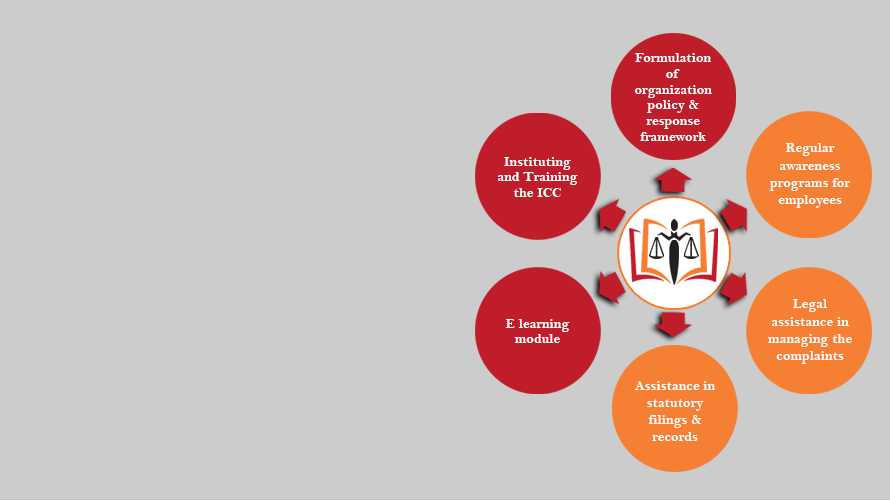
Compliance requirements of the Sexual Harassment of Women at Workplace Act,2013
Any organization with 10 or more employees must be compliant. Even those organizations that do not have any woman employee need to comply.
Section 4(2)(c) of the Sexual Harassment of Women at Workplace Act requires the presence of one outside/external member either from an NGO/Association committed to the cause of women or an individual who is familiar with the issues relating to sexual harassment in the Internal Complaints Committee(ICC).
The POSHCA team has been trained professionally by lawyers to steer ICC meetings so that complaints are handled following the Principles of Natural Justice. Many of the POSHCA members have been inducted as NGO members to the ICCs of several organizations.
It is mandatory to include relevant provisions of the Sexual Harassment of Women at Workplace Act in the corporate policy so that the intent of the organization regarding sexual harassment is clear to all the employees. It ensures that everyone is aware of the rules and guidelines that will be followed in dealing with cases of sexual harassment. It pre-empts any misunderstanding between the employer and employee about the right to complain and redressal and the duty of the employer to provide awareness trainings and a redressal mechanism in the form of a complaints committee.
It is the responsibility of all organizations to conduct training sessions to sensitize and create awareness among its employees about what amounts to sexual harassment as per the Act, the procedure of filing complaints and the how complaints will be redressed.
Preventing harassment in the workplace should be one of the most pressing compliance training initiatives for all organizations. Regular workplace harassment training educates employees and raises awareness about sexual harassment—one of the most common forms of employee misconduct—and helps build a workplace culture of respect and ethical behaviour.
The orientation session developed by POSHCA helps employees understand sexual harassment and its nuances, the redressal process, the consequences, and the role played by each employee in creating a safe, respectful, and productive workplace. All these aspects are delivered through real life case studies.
It is the responsibility of all organizations having 10 or more employees to form a redressal mechanism for any workplace sexual harassment complaints in the form of the Internal Complaints Committee (ICC). The ICC is a quasi-judicial body and is responsible for conducting a fair, prompt and impartial inquiry using the Laws of Natural Justice. It must be trained in both skill and capacity to carry out a fair and informed inquiry into a complaint of workplace sexual harassment.
Training of the ICC members thus becomes a crucial compliance requirement of the Sexual Harassment of Women at Workplace Act,2013. An absence of such training will lead to unequal and unfair results which can cost the employer, employee, complainant as well as respondent.
The ICC training by POSHCA covers the process of redressal of a complaint in detail and includes topics like the legal requirements of accepting a case, the timelines, the sensitivity required in handling such matters, report writing tips etc.
Training program specifically designed for in-house trainers for conducting awareness programs relating to the Sexual Harassment of Women at Workplace Act. The workshop includes the following: